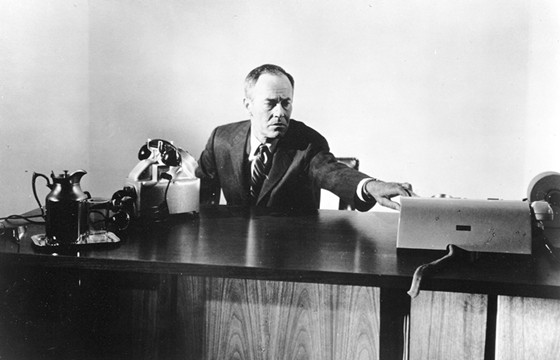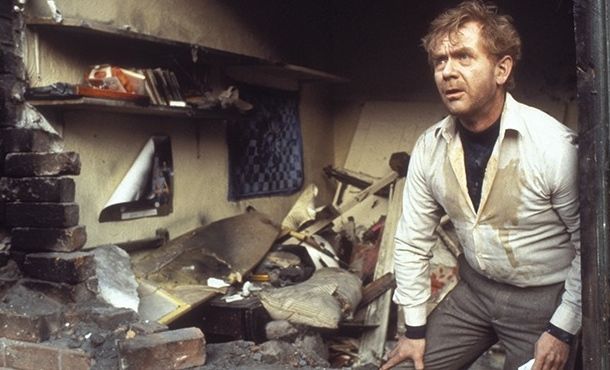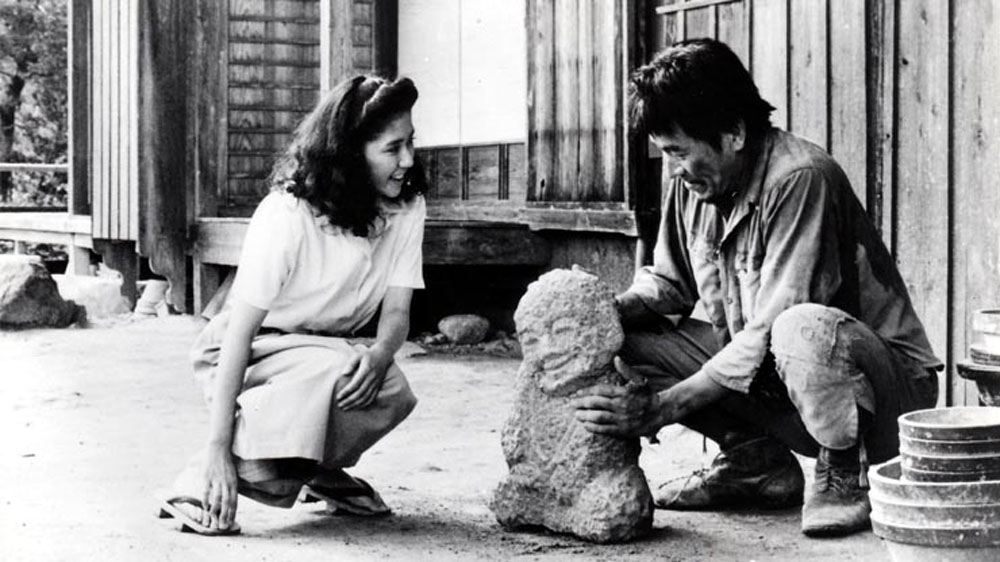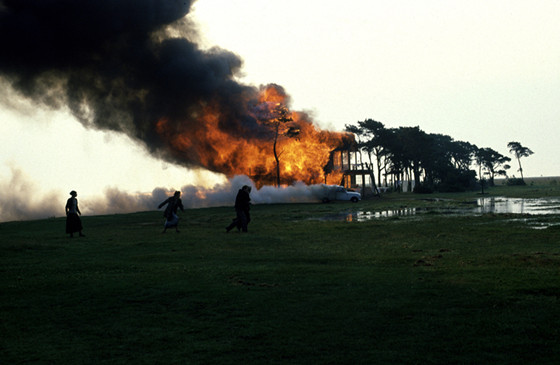5. Fail Safe (1964, Sidney Lumet)

This Cold War thriller came early in the career of legendary director Sidney Lumet and at the height of the tension brewing over the threat of worldwide nuclear destruction. Based on the novel by Eugene Burdick and Harvey Wheeler, the film presents a more serious version of the events parodied in Dr. Strangelove. Fail Safe is no laughing matter though, and dynamic performances by Henry Fonda, Dan O’Herlihy, and Walter Matthau keep us riveted throughout.
Fonda plays the President of the United States, whose military has accidentally ordered a nuclear strike on the Soviet Union. Scrambling to prevent the attack while also preparing for the possibility of its execution, the President is forced to bargain with the Soviet Union to mitigate the impending disaster; but the deal he strikes may come at the cost of American lives, and the President faces a classic philosophical “trolley problem.” Fail Safe is a brilliant nail-biter that plausibly imagines the real-world implications of human error in the nuclear age.
4. Threads (1984, Mick Jackson)

Threads undeniably shook the film world upon its 1984 television release. A post-apocalyptic examination of the effects of a nuclear war, Threads presented its fiction with a stark, documentary-style precision which made it all the more terrifying. Its profound cultural impact at the time may have lessened with age, but it’s a film still guaranteed to shake viewers today.
The plot centers around a nuclear conflict between the United States and the Soviet Union, but it primarily examines the resulting events in the small town of Sheffield, England. The depictions of a nuclear winter are hauntingly realistic, and this meditation on the social and cultural impacts of nuclear war is a chilling one. Perhaps no cautionary tale will ever be powerful enough to prevent humans from destroying one another, but Threads is as close as we’re likely to get.
3. Black Rain (1989, Shohei Imamura)

Black Rain is about a Japanese woman named Yasuko who miraculously escaped the devastating bombing of Hiroshima. Though her health seems unscathed, when she goes to live with family she faces exclusion and mistrust because of her proximity to the “black rain” and potential radiation poisoning. Yasuko finds that when it comes to nuclear warfare, even physical survival is no guarantee of a normal life.
Imamura’s film is a complex one which deals not only with the victimhood of the bombing survivors, but also with the flawed way in which Japanese society handled those among them who continued to suffer in the aftermath. The tragedy on display is multi-faceted, and, like its subject matter, Black Rain leaves a powerful effect on the viewer.
2. The Sacrifice (1986, Andrei Tarkovsky)

Shortly before his death, Tarkovsky gave us his perspective on some of the grand issues of life in his final film, The Sacrifice. Alexander, the main character, plants a tree on his birthday, as if to symbolize his hopes and dreams for a happy future in which he will see it grow. But when rumors of an imminent nuclear holocaust reach his ears, doubt and despair set in. Though not a man of faith, Alexander makes a promise to God to sacrifice all that he loves, including his own son, if the global tragedy might be prevented as a result.
Of all the films on this list, The Sacrifice presents perhaps the most mature outlook on the topic of nuclear fear, largely because its protagonist is nearing the end of his own natural life. His concern is no longer for his own existence, but for that of the next generation, so the fear on display is of quite a different nature. Inevitably, the viewer is also forced to ponder the effects of nuclear horror on future humanity, and is led to look beyond selfish, short-term concerns.
1. Dr. Strangelove (1964, Stanley Kubrick)

An accurate analysis of nuclear fear need not be deadly serious to be effective. For undeniable proof, look no further than Stanley Kubrick’s satiric masterpiece Dr. Strangelove. This caustic comedy brims with irony, imagining a disastrous world war started by accident and waged in incompetence. Still, it’s a film that knows the seriousness of its topic; using the sharp edges of wit, it cuts through the pretense of political power to reveal the logical end of unchecked atomic ambition.
In this king of catastrophe movies, an American military General launches a nuclear war against the U.S.S.R. in a bout of insanity. The horrified U.S. President is left to clean up the mess before the bombs obliterate their target and unleash a disastrous chain of events on the world. The great Peter Sellers plays no less than three roles in this satirical black comedy which will remain eternally relevant as long as humans remain addicted to waging war. As Group Captain Mandrake, President Merkin Muffley, and the eponymous Dr. Strangelove, Sellers shines in scene after scene. George C. Scott and Sterling Hayden round out the cast of this certified classic.